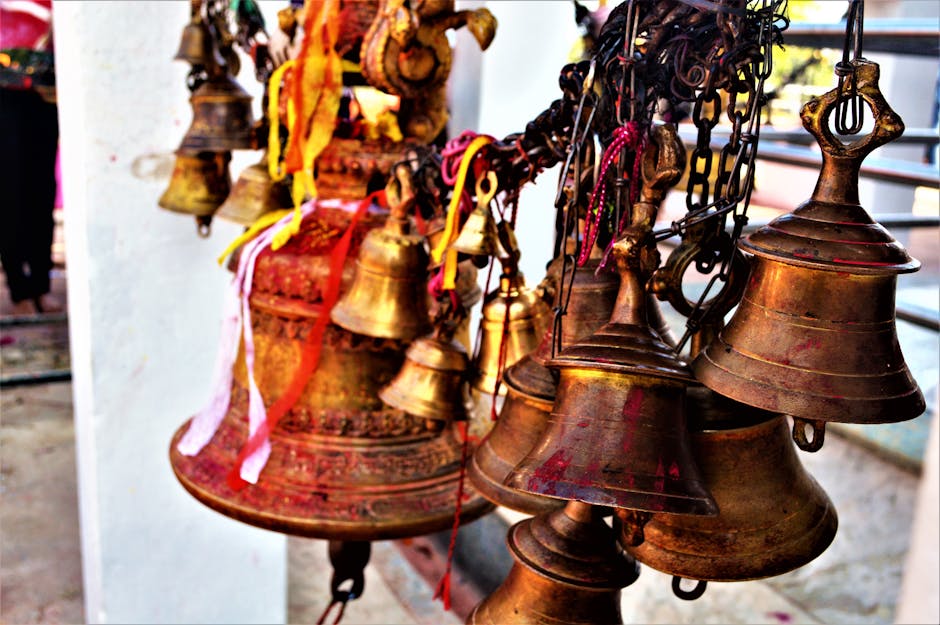Humanity’s profound need to understand the world around us and our place within it has given rise to a rich tapestry of beliefs, practices, and traditions. While religions and spiritual paths often appear vastly different on the surface, a closer examination reveals compelling common threads weaving through their diverse expressions. These underlying connections offer invaluable insights into the fundamental human condition and the search for meaning.
A Recurring Motif: The Search for Meaning
Perhaps the most fundamental unifying element across spiritual and religious systems is the relentless human quest for meaning. From ancient animistic beliefs to contemporary philosophies, humans grapple with questions of existence, morality, purpose, and the nature of reality. Different cultures and societies have approached these existential inquiries through various lenses, but the driving force remains constant: a yearning to comprehend our origins, our destiny, and our relationship with the cosmos.
Exploring shared concepts like the divine, the afterlife, and the nature of good and evil reveals the profound universality of these questions. Variations exist, naturally, in how these concepts are understood and manifested, but the very act of exploring them highlights a deeply embedded human need to connect with something larger than themselves.
The Role of Ritual and Ceremony
Rituals and ceremonies, often steeped in symbolism, serve as another common thread uniting disparate spiritualities. Whether it’s the elaborate prayers of organized religion, the meditative practices of Buddhism, the shamanistic dances of indigenous cultures, or the personal reflections of a solitary seeker, ritual provides a structure for expressing devotion, connecting with a higher power, or achieving altered states of consciousness. These ceremonies frequently provide a framework for community building, reinforcing shared beliefs, and promoting a sense of belonging. Rituals can be deeply personal, or communal, yet the purpose often remains the same: to provide a tangible link between the human and the divine or the transcendent.
Examining the Concept of Morality
A consistent thread woven throughout religious and spiritual traditions is the concept of morality. From the Ten Commandments to the Eightfold Path, ethical codes and guidelines are central to many belief systems. While specific precepts may differ, the underlying principle of striving for virtuous conduct, treating others with compassion, and seeking justice is a recurring theme. This pursuit of ethical living, regardless of the specific framework, reflects a fundamental human desire to live in harmony with ourselves and the world around us. Different systems may emphasize different aspects of morality, but the shared motivation to live a meaningful and ethical life is readily apparent.
The Nature of Reality: Exploring the Transcendent
Many spiritual and religious paths delve into the nature of reality, exploring questions about the unseen forces that shape our world. Whether these forces are understood as divine beings, universal principles, or subtle energies, there’s a shared recognition of a reality that extends beyond the purely physical. The concept of the unseen, whether encompassing angels, spirits, karma, or cosmic forces, reveals an enduring human need to perceive a wider reality beyond our immediate sensory experience. From the exploration of cosmology in ancient scriptures to the intricate metaphysics of modern spiritual philosophies, the exploration of the transcendent remains a cornerstone of many belief systems.
The Importance of Community and Belonging
The power of community and belonging is a crucial element in many spiritual traditions. Shared experiences, rites, and rituals contribute to a strong sense of identity and purpose. From monastic orders to local prayer groups, and spiritual communities, individuals find solace, support, and a shared experience that can provide a powerful anchor during challenging times. This sense of belonging, facilitated by shared beliefs and practices, fosters a sense of interconnectedness and strengthens individual spiritual journeys.
Acknowledging the Diversity Within
Crucially, appreciating the diversity within each spiritual or religious tradition is equally important. While common threads exist, the ways they are expressed and interpreted can be highly varied. One must approach these diverse belief systems with respect and sensitivity, recognizing the rich and complex tapestry of human expression each embodies. Dismissing or misunderstanding the nuanced differences within any tradition can undermine the value of the shared exploration of spirituality and the meaning of life.
The Quest for Personal Transformation
Despite the variety of approaches, the ultimate aspiration of many spiritual paths centers on personal transformation. Whether through practices such as meditation, prayer, or self-reflection, individuals seek to cultivate inner peace, wisdom, and compassion. The journey to spiritual growth, while manifesting in different forms, underscores a common human desire to refine and evolve.
Conclusion: The Power of Shared Inquiry
The diversity of beliefs and practices across various spiritual and religious traditions should not overshadow the compelling common threads that connect them. The search for meaning, the significance of ritual, the pursuit of ethical conduct, the exploration of the transcendent, the importance of community, and the quest for personal transformation reveal the essential human need to connect with something larger than themselves. By acknowledging and appreciating these common threads, we can foster greater understanding, tolerance, and respect among those who hold diverse spiritual viewpoints. Ultimately, it is the shared pursuit of the answers that lies at the heart of the diverse tapestry of spiritual and religious expression.






